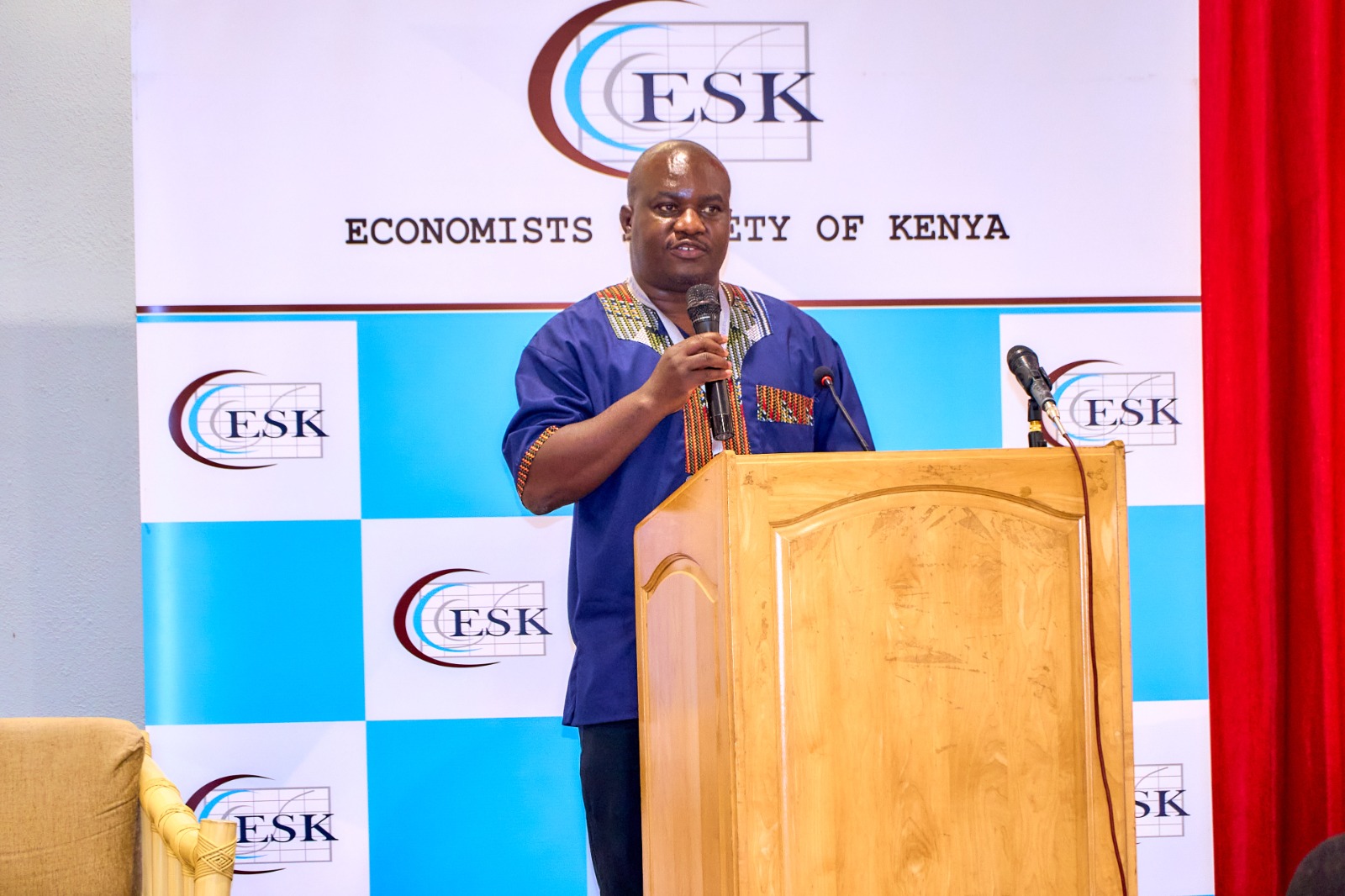 Economists Society of Kenya Chairman Dunston Ulwodi during the annual national conference of Economists 2025, in Diani Kwale county/ HANDOUT
Economists Society of Kenya Chairman Dunston Ulwodi during the annual national conference of Economists 2025, in Diani Kwale county/ HANDOUTKenya's economists are planning to present a Planning Bill to Parliament, seeking formal involvement and recognition of professional economists in government decision-making on economic matters.
This move is aimed at ensuring that Kenya’s policies and development plans are informed by data-driven, evidence-based analysis.
The Economists Society of Kenya (ESK) which concluded its five-day annual conference in Diani Kwale County last week is leading the initiative.
The conference brought together economists, policymakers, leaders from across Kenya and international development partners to reflect on Kenya’s economic future.
Under the theme, “The Kenya We Want: Achieving Sustainable Development for Inclusive Prosperity”, the forum saw economist challenged to engage deeply on the pathways towards a more resilient, equitable and sustainable economy for future generations.
ESK chairman Ulwodi Dunstone emphasised the need for strong and credible institutions as the foundation for sustainable and inclusive growth.
“Without well-functioning institutions, even the most ambitious development agenda risks falling short of its promise. Over the past decades, we have witnessed how institutional reforms have helped unlock new economic dynamism,” Dunstone said.
“At the same time, we recognise that there are areas that continue to pose challenges. These include ensuring consistency in enforcement, addressing the large role of informality in the economy and maintaining alignment between institutional arrangements and long-term national priorities.”
ESK reaffirmed its commitment to positioning economists at the center of Kenya’s economic transformation, ensuring that growth is not only achieved but shared across generations.
According to the society, development is not merely about the accumulation of resources, but about the institutional frameworks that govern how those resources are mobilised, allocated and shared.
“The Kenya we want must be anchored on institutions that promote sustainability. This extends beyond environmental stewardship; it means embedding long-term thinking into our economic governance. Too often, short-termism has taken precedence over structural transformation. Institutionalisation therefore offers a correction of this ideological viewpoint,” said Dunstone.
National Treasury has been keen on partnering with professionals, including running of state corporations with CS John Mbadi recommending that state corporations should not be run by politicians who fail to get elected.
The private sector and professionals have been instrumental in the country’s budget making process, shaping policies aimed at driving economic growth.















